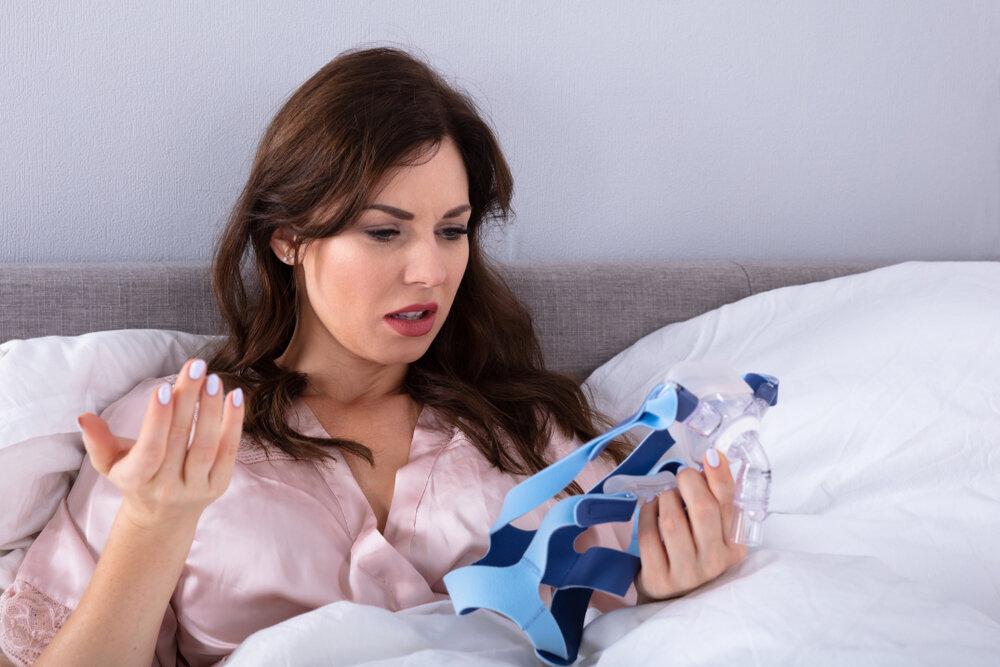What Will You Choose? CPAP or APAP for Sleep Apnea Treatment
You typically have a CPAP (continuous passive airway pressure), if you have obstructive sleep apnea. CPAP is the great option to sleep apnea treatment that produces successful results for many patients in India.
A CPAP machine consists of a mask you have to wear when sleeping over your mouth and nose. It has a shaft attached to a little machine that you can hold at bedside. It pumps air via the shaft and mask into your airway to hold the airway open. It is the least invasive way to help you sleep in the night.
You currently have two kinds of CPAP machines-fixed and automatic CPAP-available on the market. Here's a look at what they are and how special they are.
What Is APAP Machine?
The automatic CPAP machines (APAP), also known as automatic CPAPs, can maintain the right air pressure during sleep. It removes the need for you to manually adjust the pressure during the night or if your health conditions change.
You should find a number of automotive CPAP machines on the market.
How Is APAP?
Even if both CPAP and APAP machines have the same treatment mechanism — air is pumped through a tube which is connected with a mask on your nose, the pressure with which the air is pumped varies for both devices.
Air pressure is set to a certain degree in a CPAP system and controlled throughout the night. On the other side, APAP machines will change the pressure automatically depending on your need and breathing pattern while sleeping. Why is an APAP system better than CPAP when both machines have the same outcomes — continuous sleep?
And your air pressure varies throughout the night at different stages of your sleep, depending on how relaxed your airways muscles are. Instead, you can get pneumonia, have nasal problems, have seasonal allergies, or change your body depending on your way of life.
All these variables will change the amount of air pressure you need to sleep well. And thus better results can be obtained using an APAP system.
APAP Benefits
Sleeping Supine
It is generally agreed that if a person sleeps on his back, his tongue and airway muscles will relax and be pulled down by gravity. This extra pressure on the relaxed airway tissue makes the airway collapse more likely. Sleep unexpectedly exacerbates sleep apnea.
The APAP increases the pressure in the mask to hold the airways open to avoid this collapsed airway. If the individual rolls back on their side, the likelihood of a collapse of the airway is minimized. This allows the APAP system to reduce its strain. With a CPAP treatment of this type of person, the one constant pressure for both lateral and supine position would be the same, so that one position does not have the optimal care.
Allergies, Colds and Respiratory Infections
For terms of allergies, colds, and respiratory infections or coughing, APAP is an excellent substitute to CPAP. If your nasal cavity involves inflammation or stuffy nose, even other irritation, APAP may be better suited for these conditions. The APAP measures the air intake and adjusts accordingly so that the correct amount of air pressure is supplied to help you breathe.
COPD and Other Compromises
Many people experience apneas only when they are in the sleep stage called stage R, where quick eye movement (REM) occurs. REM Sleep is a deep sleep that recovers the brain, mind and cognitive function.
During REM sleep, our muscles are paralyzed to keep us from pursuing our dreams and from hurting ourselves or our bed partner. This paralysis affects the muscles' ability to respond and induces more serious apneas and airway obstructions.
This affects almost every person's breathing, causing apneas more serious, but it is particularly dangerous in patients with further respiratory disorders or neuromuscular diseases during sleep. During REM sleep, the APAP device increases its pressure to compensate for impaired muscles.
Weight Loss/Gain and other Trending Patterns
APAP is an ideal way to achieve long-term trend trends. If a person loses or gains substantial weight, a CPAP's continuous pressure setting may eventually be too high or too low for the needs of the patient since the CPAP pressure had been set when the patient was more or less weighed. APAP automatically adjusts to any weight gain or loss over a long period.
Whatever your problem is related to sleep, it must be followed by right treatment. Visit OKOA. Let us check the best possible way for your sleep apnea treatment.
**Disclaimer: The information on this page is not intended to be a doctor's advice, nor does it create any form of the patient-doctor relationship.

